It was 1998. The internet dot com industry was in high gear. Almost every phrase had a dot com at the end. In fact, it was a pop culture craze similar to what we see with hashtags today. My generation, Gen X-ers are all psyched to join a startup company, hoping it would go public. 1998 was the year I joined the internet giant, America Online. I started as an intern, became a digital assistant to account executives and later on was given title of Associate Interactive Media Developer for Digital City. Digital City was the local city guide of AOL. And all of this I owe to the chat room. Yes, the so-called chat room where I instant messaged one of the employees and asked him if there was an opening and boom…. the next thing I knew I was working in a hip office in Santa Monica.
When I joined, there were only three cities on the Digital City platform and eventually grew to many more. AOL was the first public company I worked for. It was the first company where I learned about content development, Photoshop, and HTML. It was the first company where I experienced a real internet culture. I was so psyched when I joined this company. During its time, it was Amazon, YouTube, Google, Facebook, Twitter, Spotify, Instagram, Trip Advisor and match.com combined.
AOL wasn’t the first service to connect people to the internet, but yes it was the first to make the internet a pop culture phenom. Even Hollywood created a movie about AOL’s, “You’ve Got Mail” which starred Meg Ryan and Tom Hanks. The internet giant was also one of the first to popularize millions of people to connect through Instant Messaging, the first to offer an online shopping mall, the first to partner with a number of magazines and newspapers and transformed where and how people read news. I was proud to be part of this innovation, this new way of life, building the online community. AOL was the first ever internet IPO and top performing stock of the 90s.
And so, when I heard the co-founder of AOL published a book entitled Third Wave which is now a New York Times Bestseller in the business category, I immediately told my husband, (who I met in the AOL chatroom) to see and listen to Case lecture. As I am a pop culture enthusiast, I am also a tech and entrepreneurship aficionado so I would not miss this chance.
The book launching event was held at the beautiful Ronald Reagan Presidential Library in Simi Valley and was well-attended. Steve Case is one of the world’s most accomplished entrepreneur and the forefront of digital age who made the Internet part of everyday life.
Seeing and meeting Steve Case was like going back to the highlight of my career on the internet and felt nostalgic in a funny way when he mentioned about “I’m sure you were all recipients of our AOL free trial disk.”
During his introduction he mentioned that the book The Third Wave Classic Study of Tomorrow by Alvin Toffler published in 1980 was his inspiration writing his book, “The Third Wave: An Entrepreneur’s Vision of the Future“.
He started with Procter and Gamble. Then went to Pizza Hut which owned by PepsiCo where he said his best title up to this day was “Director of New Pizza Development”. The company paid me to travel around the country to eat pizza. Not a bad thing if you’re 23.”
Steve case started AOL in 1985 when only 3% of people were online and those 3% were only one hour a week. “It took us nearly a decade before we finally got attraction. I’m sure all of you were recipients of our AOL free trial. That was a great journey and the way I frame again borrowing from Toffler’s three waves: agricultural revolution, the industrial revolution and the technology revolution. That’s the arc of the last two centuries. He added, “President Reagan would say this ‘250 years ago America itself was a startup. It was just an idea. And it went from this little start up nation to the leader of the free world and partly because it has a large leading economy and the work of entrepreneurs.
So what really are the three waves of digital age?
Steve noted, “The first wave was the internet building infrastructure and getting people connected and so was the software, networks, and servers. From nobody connected to everybody connected and realizing it was pretty important. The second wave was building apps and services on top of the internet – Facebook, Twitter, Waze or Snapchat. It’s really been about apps and software. The third wave is integrating internet seamless and pervasive ways and other aspects of our lives – healthcare, education, food, energy, transportation pretty important parts of our lives, pretty big sectors of our economy.”
The Three P’s of the Third Wave
Case said that the Third Wave is going to require a different kind of innovator not just for entrepreneurs but innovator of large business organizations. The three P’s which are Partnership, Policy, and Perseverance are really going to define the Third Wave.
“Partnership ….you can’t go wrong. You have to partner with other organization, not just about the app, not just about the software. Partnership is really really important in the third wave.
“The second is Policy. Sectors like healthcare, food, transportation are regulated. And they are going to continue to be regulated. We can debate the regulations. In some cases they should change, in some cases they shouldn’t but there are some regulations about food safety, or drug safety. Autonomous driver less cars on roads don’t create havoc or drones in the sky don’t create problems but there are going to be some regulations. So at the end of the day we are going to need to understand that and figure out a way to manage through that.
“Perseverance. It’s going to require a long term view to get through that. Revolutionizing healthcare not going to happen quickly. Sometimes I learn this from AOL revolution which sometimes happens in evolutionary ways. And so in having that patience, perseverance I think it’s is going to be important.”
“Facebook, or Snapchat or Instagram and some other successful companies in the second wave do not require partnerships. They’re able to do on their own. Those three P’s are important in the third wave, not important in the second wave but were essential in the first wave. AOL and other companies would not have been successful without partnerships. We actually had hundreds of partnerships.”
I encourage everybody to read the book and learn about future trends that will revolutionize society.

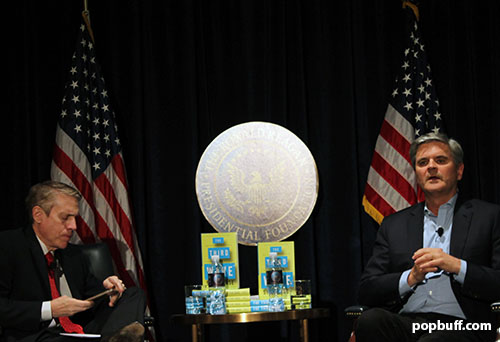
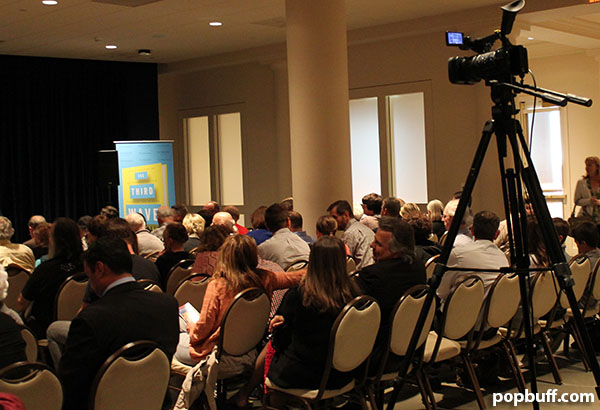
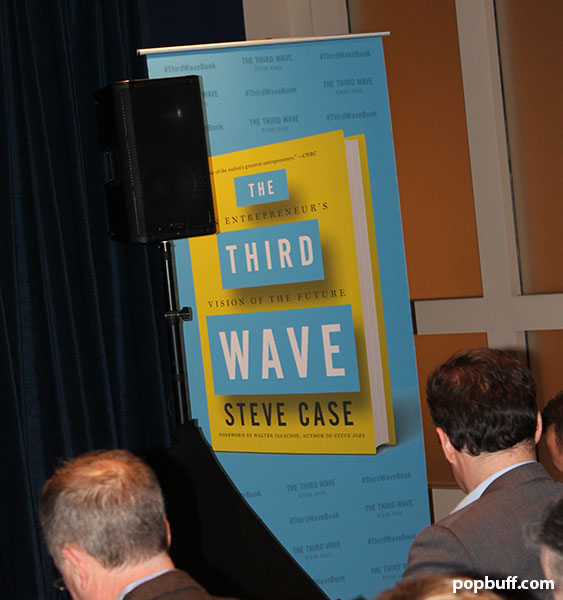
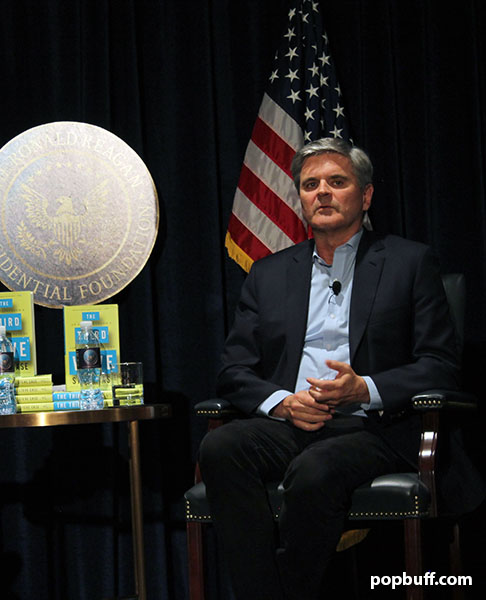
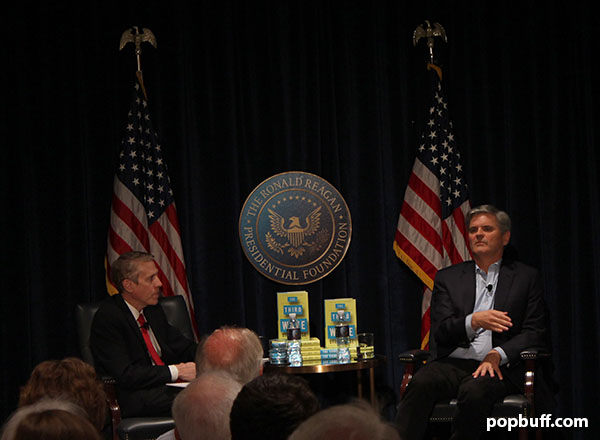
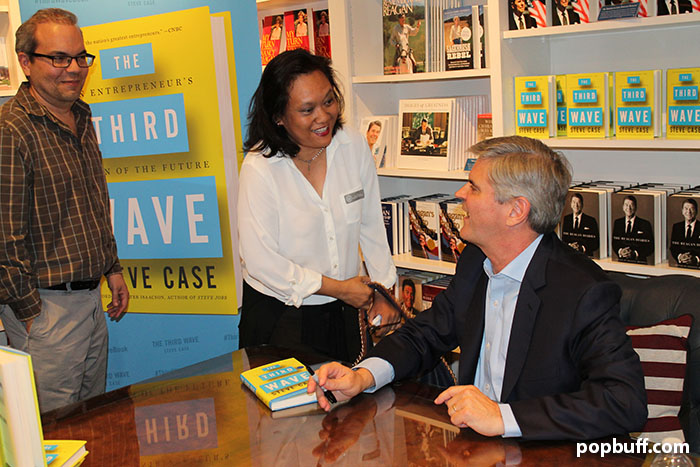
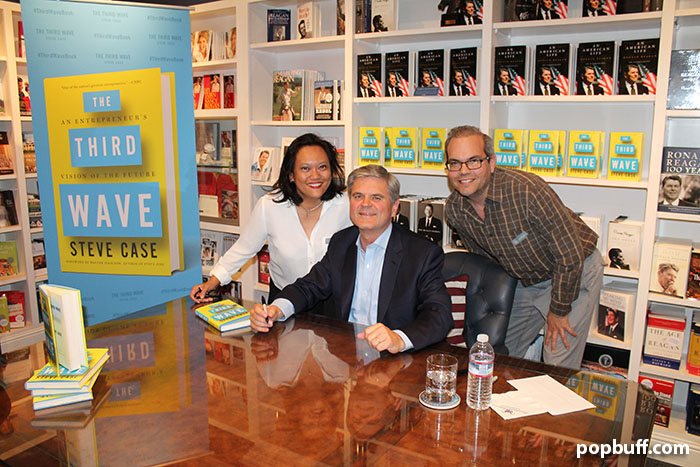
Speak Your Mind